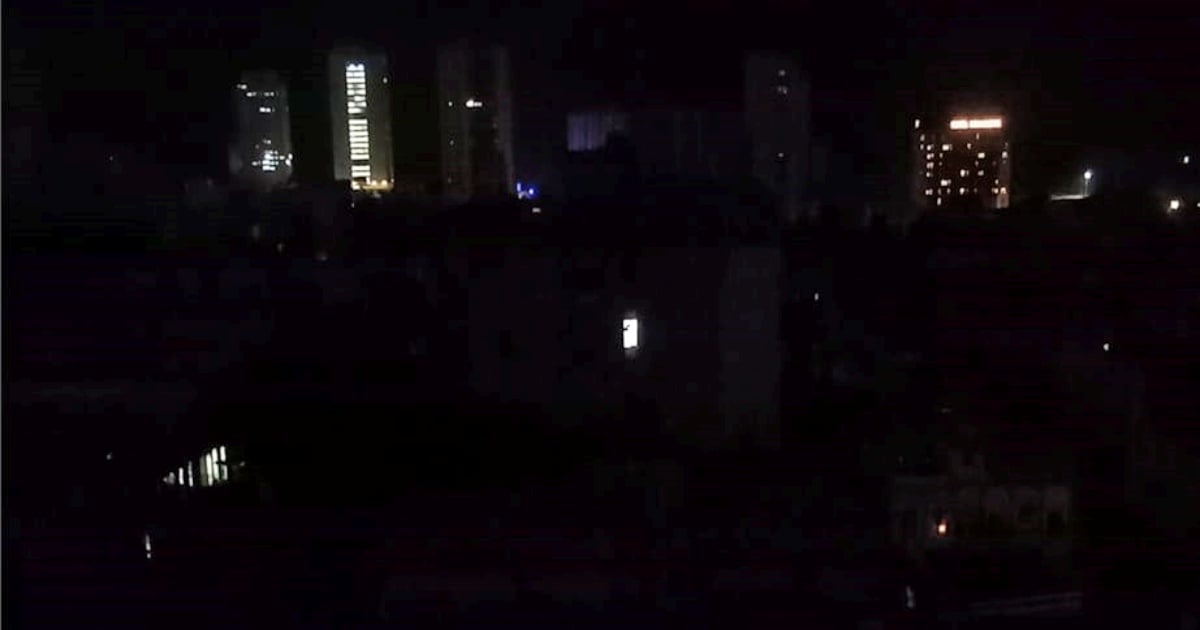On Wednesday morning, Cubans on the island were taken aback by yet another failure of the National Electric System (SEN), marking the third such breakdown in less than two months. This latest outage was attributed to an "unexpected" shutdown of the Antonio Guiteras Thermoelectric Plant in Matanzas. Despite the Cuban government's claims of working diligently to restore power, growing unrest among the populace has led to calls for Díaz-Canel's immediate resignation.
Amidst hundreds of comments on the Facebook pages of Unión Eléctrica (UNE) and Cubadebate, citizens labeled the situation as untenable, demanding concrete solutions rather than repetitive excuses far from being actual remedies. Many Cubans have accused the government of "terrorism" for the dire conditions they endure.
Some have pointed out the nearing "72 hours without power" scenario predicted by Decree 110, which the regime previously denied. Comments like "If we could, we'd all leave. This isn't a life," and "The Cuban people need a different kind of collapse to end this suffering" highlight the despair. Others urge the government to "let the Cuban people be free" and criticize the regime for being "corrupt and failed."
Voices of Frustration
The government frequently blames the U.S. embargo, yet fails to address the root problems. Citizens have expressed their frustrations: "It's shameful that we don't have basic services. Taxes and electric bills should be suspended," and "In a year, no economic or social aspect has improved. Only the people suffer."
Many are skeptical about the upcoming birthday celebration of Sandro Castro, set for Thursday, December 5th. Comments dripping with irony asked, "Will Sandro Castro be without power?" and "His birthday will surely be lit by solar panels." Nevertheless, most agree that despite the blackout, the "grandson" will still manage to celebrate lavishly.
Financial Transparency and Systemic Issues
Numerous Cubans have also criticized the opaque handling of financial resources and the daily impact these collapses have on their quality of life. The electric system's failures are seen as just one facet of a deep crisis affecting all aspects of life in Cuba, further fueling widespread dissatisfaction.
Feedback collected reflects the profound dissatisfaction and frustration of citizens with the current situation in Cuba, characterized by constant failures in the electric system, government inefficiency, and the daily hardships faced by the people.
Public Outrage and Calls for Change
Comments from citizens underscore the exhaustion of a people pushed to their limits. "You're going to have to change your narrative; nobody believes you anymore. The Guiteras plant is constantly being 'repaired,' yet it always has problems," said one frustrated resident. Others emphasized that the so-called "blockade" is merely a scapegoat for the government's incompetence.
The energy collapse is not only a disruption in electricity supply but has become a symbol of the structural crisis the country faces, intensifying public discontent and highlighting the system's deficiencies.
Understanding Cuba's Energy Crisis
Why is the Cuban energy system frequently failing?
The Cuban energy system is failing due to outdated infrastructure, lack of proper maintenance, and insufficient resources, exacerbated by the government's inability to effectively address these issues.
What are the public's main criticisms of the Cuban government?
The public criticizes the government for inefficiency, lack of transparency, and failure to provide basic services, often attributing these issues to corruption and mismanagement.
How has the energy crisis affected daily life in Cuba?
The energy crisis has severely impacted daily life by disrupting electricity supply, affecting both personal and economic activities, and contributing to the general hardships faced by the Cuban population.
What are citizens demanding from the Cuban government?
Citizens are demanding transparency, accountability, and effective solutions to the ongoing crises, as well as political reforms to improve the overall governance of the country.
